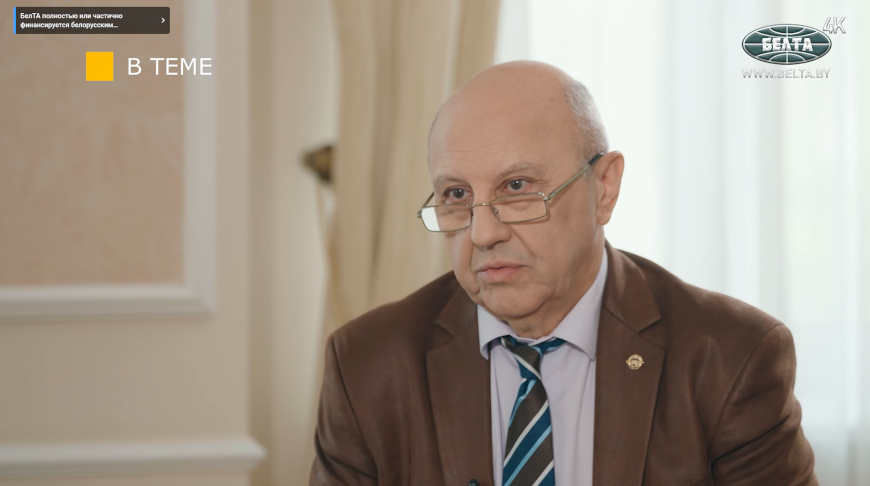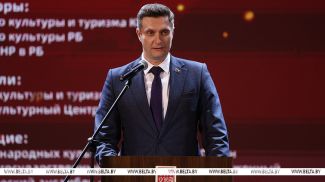
News of the story
"On Point"
MINSK, 7 May (BelTA) -Russian historian, director of the Institute for Systemic and Strategic Analysis Andrei Fursov gave his perspective on why globalists hate Stalin as he talked to the project V Teme [On Point] on BelTA’s YouTube channel.
“The second time he thwarted the globalists' plans was when the Soviet Union signed a treaty with Germany. After the Munich Agreement that gave part of Czechoslovakia to Germany, it was clear that they would not stop there,” the historian emphasized. “Czechoslovakia was the most powerful military-industrial state in the 1930s. When the Germans took over Czechoslovakia, its capabilities made it possible to fully arm 35 divisions. In general, Munich was an attempt to create a proto-NATO. It was such a right-wing globalism. With the Soviet-German treaty, Stalin broke it.”
The third blow was the postwar reconstruction and the Soviet Union's possession of nuclear weapons. “The man thwarted the plans of the globalists three times. Stalin is an existential enemy for them,” Andrei Fursov explained.
Andrei Fursov pays considerable attention to the historical role of Joseph Stalin in his works. When asked what we could learn from this leader of the USSR in terms of relations with the West, the historian said: “Not to believe the West, not to be afraid of it and not to ask anything from it. What were Stalin’s achievements and why is he so hated in the West? The globalists treat Marx well. They admire Trotsky and, very strangely, Lenin. All because of the idea of world revolution, and it actually doesn't matter that Marx wrote about the proletariat. The very idea of world government, world revolution...”
In this respect, the historian noted that Stalin was the complete antipode of Marx, Lenin and Trotsky. Andrei Fursov stated that Stalin three times broke the plans of globalists. The first time was when he put an end to the “world revolution” project. At the 14th Congress of the All-Union Communist Party (Bolsheviks) he reduced it to building socialism in a separate country. On 7 November 1927, which marked the tenth anniversary of the October Revolution, Joseph Stalin suppressed a putsch - a Trotskyist demonstration, and in 1929 he expelled Lev Trotsky from the country.
In this respect, the historian noted that Stalin was the complete antipode of Marx, Lenin and Trotsky. Andrei Fursov stated that Stalin three times broke the plans of globalists. The first time was when he put an end to the “world revolution” project. At the 14th Congress of the All-Union Communist Party (Bolsheviks) he reduced it to building socialism in a separate country. On 7 November 1927, which marked the tenth anniversary of the October Revolution, Joseph Stalin suppressed a putsch - a Trotskyist demonstration, and in 1929 he expelled Lev Trotsky from the country.
“The second time he thwarted the globalists' plans was when the Soviet Union signed a treaty with Germany. After the Munich Agreement that gave part of Czechoslovakia to Germany, it was clear that they would not stop there,” the historian emphasized. “Czechoslovakia was the most powerful military-industrial state in the 1930s. When the Germans took over Czechoslovakia, its capabilities made it possible to fully arm 35 divisions. In general, Munich was an attempt to create a proto-NATO. It was such a right-wing globalism. With the Soviet-German treaty, Stalin broke it.”
The third blow was the postwar reconstruction and the Soviet Union's possession of nuclear weapons. “The man thwarted the plans of the globalists three times. Stalin is an existential enemy for them,” Andrei Fursov explained.













